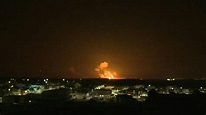Featured
article
- Get link
- X
- Other Apps
Gaza’s Water Crisis Deepens: UNICEF Warns of Looming Catastrophe

Gaza is teetering on the edge of a humanitarian disaster as its water infrastructure collapses under the weight of conflict and blockade, according to UNICEF. The agency has described the situation as a “man-made drought,” with only 40% of drinking water production facilities still operational.
UNICEF spokesperson James Elder warned that children are at immediate risk of dying from thirst, as access to clean water has plummeted far below emergency standards. The crisis is compounded by a fuel blockade that has crippled the operation of water pumps and distribution systems, leaving over two million Palestinians without reliable access to safe water.
The consequences are already visible: a 50% surge in malnutrition among children under five was reported between April and May, and half a million people are facing hunger. Elder emphasized that the crisis is not due to logistical failure but political inaction, noting that with sufficient fuel, hundreds of wells could resume operation within a day.
As the blockade continues and humanitarian aid remains restricted, UNICEF has called this the most critical moment since the conflict began. Without urgent intervention, the most basic element of life—water—may become the deadliest weapon in Gaza’s ongoing tragedy.
Popular Posts
Midnight Blast Shakes Gaza Skyline Amid Rising Tensions
- Get link
- X
- Other Apps
Trump's Six Words: "I'm Going to Stop the Wars"
- Get link
- X
- Other Apps



Comments
Post a Comment